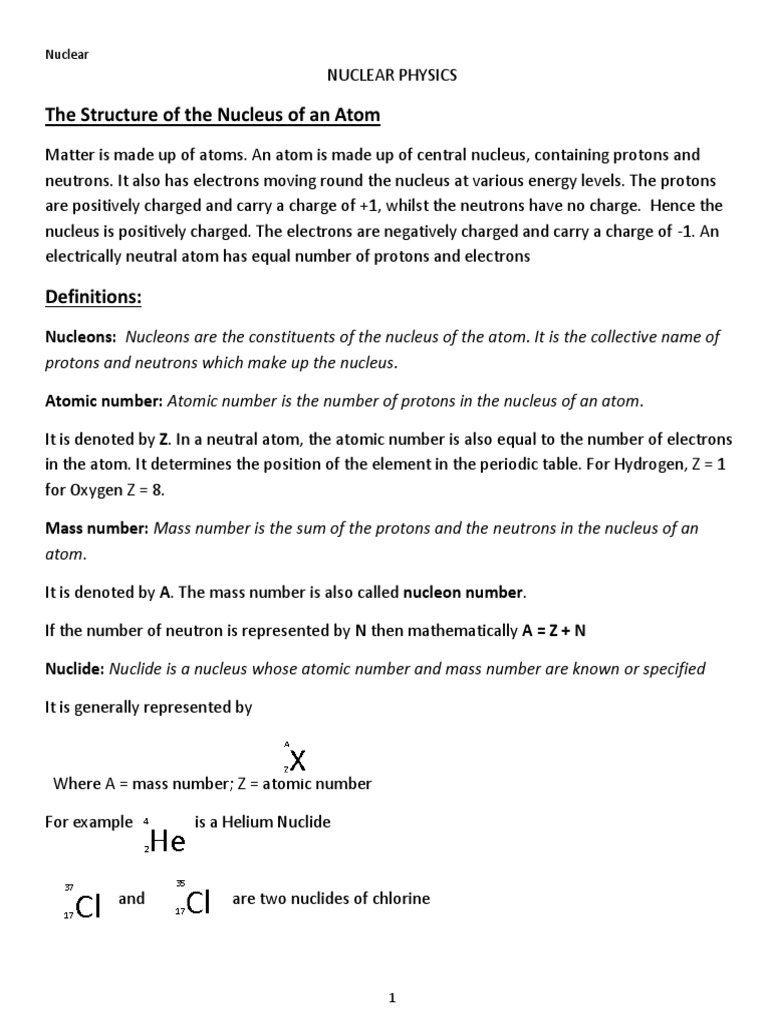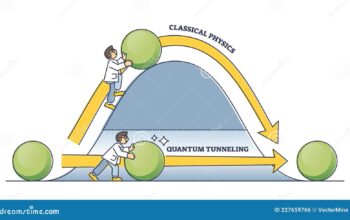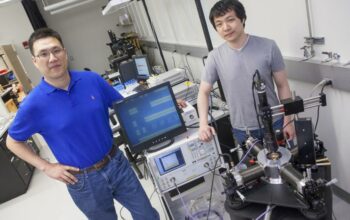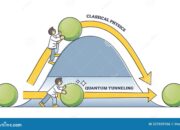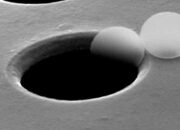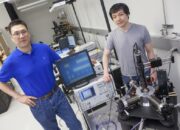Embarking on the ambitious journey of studying nuclear physics requires a solid foundation across various domains of science and mathematics. As a complex and multifaceted field, nuclear physics delves into the intricacies of atomic nuclei, their components, and the myriad interactions that govern their behavior. Herein, we will explore essential concepts, requisite skills, and vital resources that aspiring physicists should consider before immersing themselves in this discipline.
1. Fundamental Physics Principles
Before delving into nuclear physics, a robust understanding of fundamental physics is imperative. Classical mechanics serves as the bedrock upon which many nuclear concepts rest. Understanding the principles governing motion, forces, and energy is critical, as these concepts will recur in more advanced discussions. Furthermore, a grasp of electromagnetism, particularly the behavior of charged particles, will provide insights into the interactions that take place within the nucleus.
2. Mathematical Proficiency
Nuclear physics thoroughly integrates advanced mathematics. A strong command of calculus is essential, as it is frequently employed in models of physical phenomena. Additionally, a familiarity with linear algebra, differential equations, and complex numbers is indispensable for tackling the mathematical expressions that describe nuclear processes. Mastery of these mathematical tools will facilitate a deeper understanding of wave functions, probability distributions, and cross-sections in scattering theory.
3. Atomic Structure and Quantum Mechanics
An essential prerequisite for nuclear physics is a sound grasp of atomic structure. Familiarity with the arrangement and behavior of electrons around a nucleus will elucidate nuclear interactions. More importantly, quantum mechanics is paramount; concepts such as wave-particle duality, principles of uncertainty, and quantization of energy levels are foundational to understanding nuclear phenomena. The dual nature of radiation, alongside the probabilistic behavior of particles, necessitates a thorough comprehension of quantum theory.
4. Nuclear Forces and Theories
Understanding nuclear forces is imperative to comprehending the stability and reactions of atomic nuclei. The strong nuclear force, which binds protons and neutrons, operates over short ranges yet possesses immense power, counteracting the electrostatic repulsion between positively charged protons. Additionally, familiarize yourself with fundamental theories such as the liquid drop model and the shell model. These theories form the cornerstone for interpreting nuclear structure and stability, providing insights into phenomena like nuclear fission and fusion.
5. Radioactivity and Decay Processes
Radioactivity is a pivotal topic within nuclear physics, necessitating an understanding of various decay processes. Knowledge of alpha, beta, and gamma decay is essential, as is a grasp of half-lives and decay constants. The concept of radioactive dating and the applications of these processes in fields ranging from archaeology to medicine underscore the importance of radioactivity. Additionally, comprehending the principles underlying the safety and implications of radiation is crucial, particularly in practical applications.
6. Experimental Techniques
Equally significant as theoretical knowledge is the acquaintance with experimental methodologies employed in nuclear physics. Knowledge of detection techniques such as scintillation counters, Geiger-Müller tubes, and ionization chambers is vital for any experimental physicist. Furthermore, understanding the operation of particle accelerators and nuclear reactors will provide insights into how nuclear experiments are conducted. Engaging in laboratory work and experiments will not only reinforce theoretical concepts but also foster critical problem-solving skills.
7. Computational Skills
Modern nuclear physics is increasingly reliant on computational tools. Being adept in programming languages such as Python, C++, or MATLAB will facilitate the modeling and simulation of nuclear phenomena. Additionally, knowledge of statistical analysis methods is advantageous, especially for interpreting experimental data and results. Wireless technologies and data acquisition systems, coupled with computational prowess, can significantly enhance research capabilities in nuclear physics.
8. The Broader Context and Implications
Beyond abstract theories and calculations, nuclear physics has profound implications in diverse realms such as energy generation, medicine, and national security. Familiarizing oneself with the ethical considerations and societal impacts of nuclear research and technology is imperative. Understanding topics such as nuclear power, medical imaging techniques using radioactive isotopes, and the complexities surrounding nuclear proliferation will shape a well-rounded perspective on the relevance of nuclear physics in today’s world.
9. Academic and Research Opportunities
To fully engage with nuclear physics, one should explore various academic avenues and research opportunities. Institutions worldwide offer programs and specializations in nuclear physics, often collaborating on cutting-edge research with international laboratories. Engaging in academic conferences, workshops, and seminars will facilitate networking with established physicists and peers alike. Thus, pursuing internships or research assistantships within nuclear physics labs can provide valuable hands-on experience and mentorship.
10. Recommended Resources for Study
Finally, self-directed study is an integral part of mastering nuclear physics. A plethora of textbooks, online courses, and academic journals are available for students at all levels. Notable texts include “Introduction to Nuclear Physics” by John Lilley and “Nuclear Physics: A Very Short Introduction” by one of the recognized experts in the field. Online platforms like Coursera and edX offer specialized courses taught by leading physicists. Engaging with peer-reviewed articles and publications will enhance both understanding and awareness of ongoing advancements in nuclear physics.
In conclusion, embarking on the study of nuclear physics necessitates a firm grasp of fundamental principles, mathematical prowess, and an understanding of broader implications. By equipping oneself with the requisite knowledge and skills, aspiring physicists will be well-prepared to explore the fascinating and complex world of nuclear physics.
